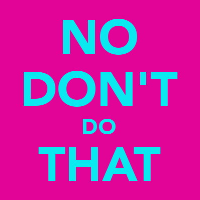Stanford Provost Warns of “Unusually High” Number of Cheaters

Here’s a lesson for Stanford students headed back to school this week for the start of Spring Quarter: the Honor Code does not prevent cheating.
Last week, Provost John Etchemendy sent a letter to the faculty warning of allegations that an “unusually high” number of cheaters were taking advantage of the school’s Honor Code. “One faculty member reported allegations that may involve as many as 20 percent of the students in one large introductory course,” he wrote.
He didn’t name the class, but multiple sources told the Stanford Daily it was CS 106A: Programming Methodology, a popular introduction to computer programming. There were 655 students enrolled last winter semester.
The school said letters were being sent out to students who had been reported by faculty to the Office of Community Standards (OCS), but it did not say how many. Eighty-three students were caught cheating last year, according to a university spokeswoman.
Nobody expects that the numbers tossed around reflect the actual amount of cheating going on. Perhaps a more accurate indicator was derived from an experiment last year by Stanford statistics professor Guenther Walther. His test was described as an exercise “to demonstrate a certain technique in probability that allows survey-makers to anonymize individual respondents’ answer choices while discerning the desired information.”
What he found was that 40% of 86 responding students cheated while at Stanford.
That certainly is disrespectful of the Stanford Honor Code, the university’s statement of academic integrity that has been on the books since 1921 and introduced to every freshman. It emphasizes self-policing by students, and self-restraint by teachers:
“The faculty on its part manifests its confidence in the honor of its students by refraining from proctoring examinations and from taking unusual and unreasonable precautions to prevent the forms of dishonesty.”
The most frequent kind of cheating involves claiming someone else’s work as your own, or participating in unpermitted assistance, according to OCS.
The Education Testing Service says that college students are well-prepared for cheating. Its academic cheating fact sheet says, “While about 20% of college students admitted to cheating in high school during the 1940's, today between 75 and 98 percent of college students surveyed each year report having cheated in high school.”
The fact sheet also says,
· Cheating no longer carries the stigma that it used to. Less social disapproval coupled with increased competition for admission into universities and graduate schools has made students more willing to do whatever it takes to get the A. · Grades, rather than education, have become the major focus of many students.
· Students who cheat often feel justified in what they are doing.
· Cheating does not end at graduation.
–Ken Broder
To Learn More:
Allegations of Cheating by Large Number of Students Rocks Stanford Campus (by Betty Yu, CBS SF Bay Area)
“Troubling” Cheating Allegations at Stanford (by Sue Dremann, Palo Alto Weekly)
Stanford University Looks into Allegations of Cheating by Students (by Tracy Seipel, San Jose Mercury News)
Stanford University Investigating "Unusually High" Number of Cheaters (by Deborah Hastings, New York Daily News)
Stanford University Investigates "Unusually High" Number of Cheaters (by Katharine Gripp, National Monitor)
Honor Code Remains Adjacent to Student Focus (by Erica Evans, Stanford Daily)
- Top Stories
- Controversies
- Where is the Money Going?
- California and the Nation
- Appointments and Resignations
- Unusual News
- Latest News
- California Forbids U.S. Immigration Agents from Pretending to be Police
- California Lawmakers Urged to Strip “Self-Dealing” Tax Board of Its Duties
- Big Oil’s Grip on California
- Santa Cruz Police See Homeland Security Betrayal in Use of Gang Roundup as Cover for Immigration Raid
- Oil Companies Face Deadline to Stop Polluting California Groundwater





